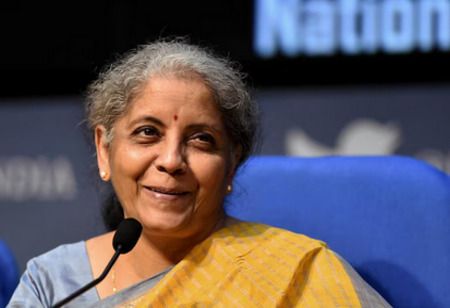
FM Sitharaman Says India's Capacity to Absorb Shocks is Strong


According to Union Finance Minister Nirmala Sitharaman, the current worldwide instability is expected to have minimal effects on India's economic growth rate. She noted that India's economic momentum is rooted in internal elements. She stressed that achieving the 'Viksit Bharat' objectives requires India to maintain an eight percent growth rate.
During the opening ceremony of the fourth Kautilya Economic Conclave in New Delhi on Friday, the finance minister noted that the country is experiencing a period of extraordinary global instability and unpredictability, describing it as a fundamental shift rather than a short-term disturbance.
Sitharaman observed that international structures are changing, with global institutions presently weakening trust within the worldwide community. She referenced recent G20 conversations, during which specialists discussed the necessity for reforming international organizations to reestablish equilibrium.
Also Read: Niranjan Singh Appointed as Head of Media at Monks India
Emphasizing India's dual-pronged strategy, she explained that the country seeks to achieve developed nation status by 2047 while simultaneously enhancing domestic self-sufficiency, making clear that self-sufficiency does not mean adopting an isolationist economic approach.
"History teaches us that crises often precede renewal. The fragmentation we see today may give rise to more sustainable and unforeseen forms of cooperation. The challenge is to ensure that inclusive principles shape cooperation.
For developing countries, this is a necessity, not just a romantic aspiration. We cannot afford to be passive spectators in a world where decisions elsewhere determine our destinies. We must be active participants, shaping outcomes where possible and preserving autonomy where necessary," the finance minister said during the summit.
The Finance Minister emphasized that international engagement protocols are undergoing transformation, with the magnitude of obstacles being substantial. She noted that establishing any fresh worldwide balance requires accounting for numerous intricate factors.
Sitharaman additionally noted that historical trends are shifting, evident through reduced investment levels and fluctuating energy costs, indicating widespread uncertainty within the international economic environment.
Also Read: Interesting Reactions of Tech Leaders in the Light of AI Appreciation Day
On current world order, Sitharaman said, "geopolitical conflicts are intensifying. Sanctions, tariffs, and decoupling strategies are reshaping global supply chains. Wars and strategic rivalries are redrawing the boundaries of cooperation and conflict. Alliances that once appeared solid are being tested, and new coalitions are emerging."
Talking about these changing scenarios for the country, the finance minister added, "For India, these dynamics highlight both vulnerability and resilience. Our capacity to absorb shocks is strong, while our economic leverage is evolving. Our choices will determine whether resilience becomes a foundation for leadership or merely a buffer against uncertainty."
Also Read: April 2025 CXO Appointments Synopsis
This year’s theme, “Seeking Prosperity in Turbulent Times”, is relevant both in the context of India’s growth aspirations and its success in navigating times of exceptional uncertainty, turbulence and changing geopolitics. Building on its rich experience, the KEC has significantly improved both its quality and international presence with 75 participants from abroad, representing over 30 countries, to focus on contemporary challenges.